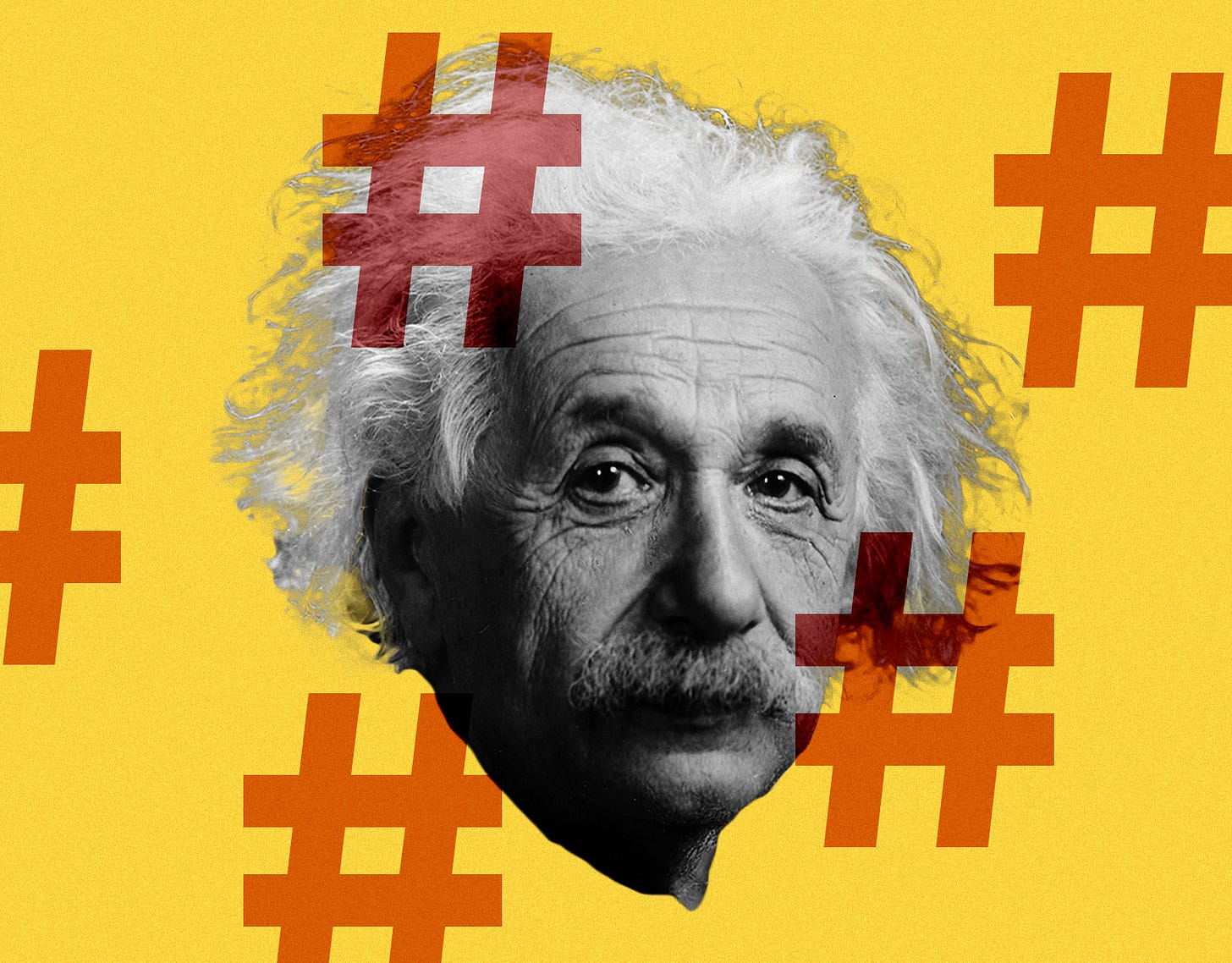The Stupidest Einstein Meme
Don't let memes do your thinking for you, part CLXXII: In a controversy I will not rehash here, a local journalist saw fit to criticize his and my community for not expressing as keen a sense of outrage about an issue (of historical school-naming) as he thought it should. His piece went on to attribute a sentiment to Albert Einstein: "Silence is complicity with the status quo."
Now, Einstein was known for having spoken out strongly against some of the greatest moral evils of his era, including the rise of Nazism and the Jim Crow laws then at their height in the United States, where he lived. Even so, this sloganistic formula seemed to me a suspiciously broad, sweeping, and meme-like assertion for him to have made. So I went online to check and sure enough, the attribution to Einstein appears with somewhat different wording in various widely shared social media memes ("If I Were To Remain Silent, I'd Be Guilty Of Complicity").
So what did Einstein say? I could find no credible attribution of the quoted words to him, but I did find this seemingly genuine Einstein quote on silence and complicity from 1954:
[I]n long intervals I have expressed an opinion on public issues whenever they appeared to me so bad and unfortunate that silence would have made me feel guilty of complicity.
Let's compare this seemingly genuine quote, in its proper context, with the meme version ("If I Were To Remain Silent, I'd Be Guilty Of Complicity") and the meme version as its message was understood by the journalist using it downstream ("Silence is complicity with the status quo.")
The introductory phrase "In long intervals" serves to emphasize that Einstein saved this level of public engagement for issues that did not come up every day, but only infrequently. Not every issue was Nazism or Jim Crow. He goes on to speak with finesse of reaching such a personal decision when silence "would have made me feel guilty of complicity." [emphasis added] Note the central role here of personal conscience: the quoted Einstein does not prescribe standards of guilt for others at all, let alone hector them for not speaking out in response to exactly the same moment or event that exceeded his threshold.
You might even argue that the meme turns on its head the spirit of the authentic Einstein quote: Where Einstein stressed the rarity and gravity of the situations that had prompted him to take a public stand, the meme in its popular use (as passed on by the journalist, for example) serves to arraign almost everyone other than the morally hypervigilant, since the rest of us let slide dozens of vaguely problematic things a day without raising our voices in denunciation. Where Einstein presents as central the role of personal conscience, the meme sets the stage to reproach the mass of men for whom the drama of political denunciation is not the stuff of day to day life. Where Einstein conveys humility and perspective, the meme promotes strident displays of moralizing.
Don't let memes do your thinking for you.


